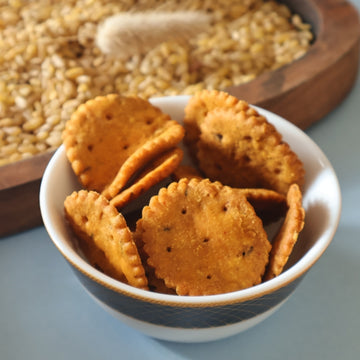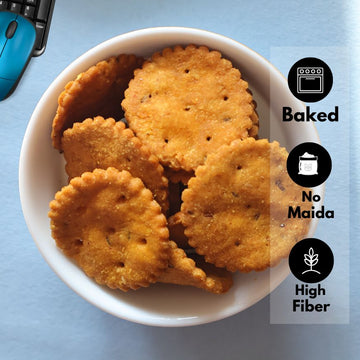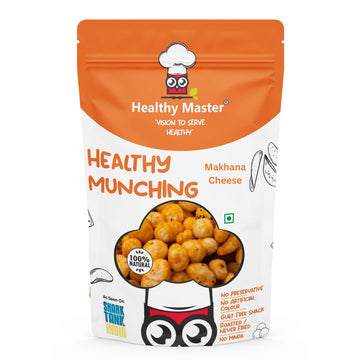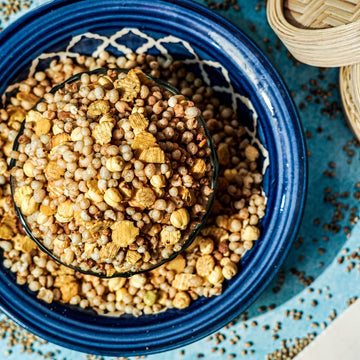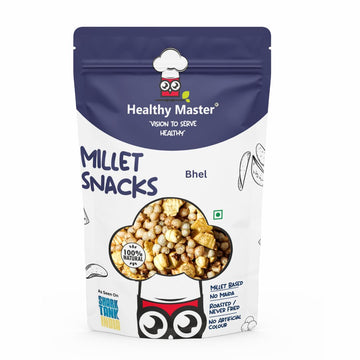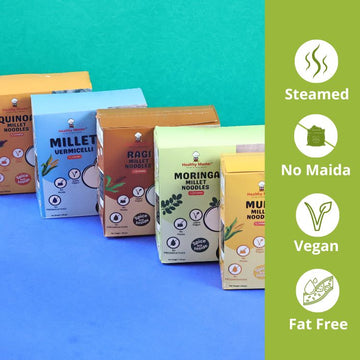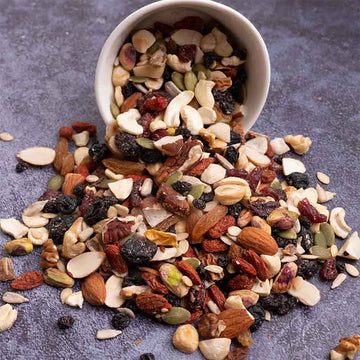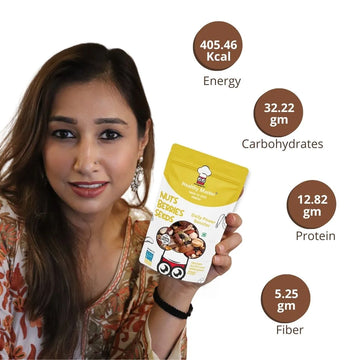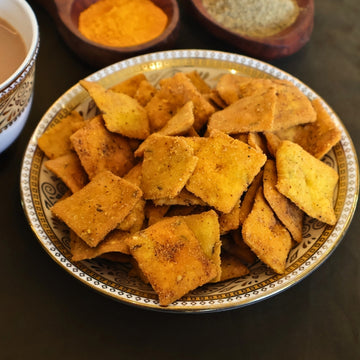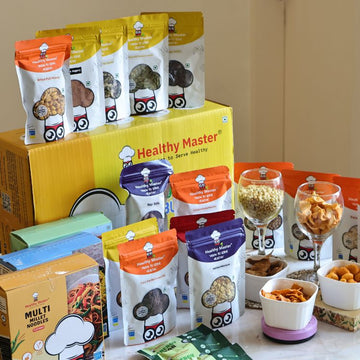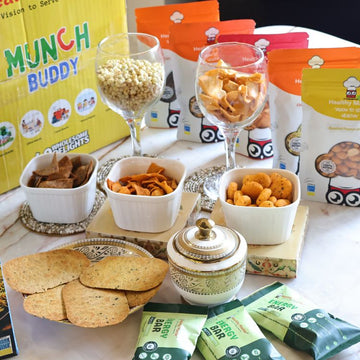How Many Extra Calories To Consume During Pregnancy Second Trimester? Additional Foods To Consume
by Mary James on Nov 08, 2023

How Many Extra Calories To Consume During Pregnancy Second Trimester? Additional Foods To Consume
It's exhilarating and transformative to start your pregnancy's second trimester. Your nutritional requirements are increasing as quickly as your baby's growth. You might be curious about how many more calories you need to take in at this vital time.
You'll require an additional 300–350 calories each day during the second trimester. These extra calories act as fuel for your infant's growing body, ensuring that they get the vital nutrients required for development.
Additionally, these calories support the changes your body is undergoing and keep your energy levels up.
But bear in mind that every person has different needs. Your particular calorie requirements are influenced by things including your pre-pregnancy weight, degree of activity, and general health.
BMI Requirements During Pregnancy Second Trimester
The number of calories you must consume to gain the necessary weight during pregnancy depends on your BMI. It is important to note how much to eat in the second trimester of pregnancy.
Underweight pregnant women must gain more weight than those who are overweight. Your pre-pregnancy body mass index determines the appropriate amount of weight gain for you.
You can use an online BMI calculator if you don't know your BMI to determine whether you are obese, overweight, underweight, or of normal weight.
Underweight
A lady who is underweight has a BMI below 18.5. If you are underweight, gaining a total of 12 to 16 pounds throughout the second trimester of pregnancy is advised. This amounts to a daily calorie need of an additional 500–650. This equates to 2200 to 2350 calories daily for the majority of women.
Normal weight
A woman of normal weight has a BMI of 18.5 to 24.9. If your pre-pregnancy BMI was normal, one to one and a half pounds per week, or 10 to 15 pounds total, is the acceptable weight gain for the second trimester.
The latest advice is to consume about 340 extra calories each day. This equates to about 2140 calories per day for the majority of women.
Overweight
A lady who is overweight has a BMI between 25 and 29.99. If you are overweight, an eight- to ten-pound weight increase is advised throughout the second trimester. For overweight women, a daily calorie intake of between 2000 and 2100 is advised.
Obese
Women who are obese have a BMI greater than 30. You should have gained five to 10 pounds overall. Your recommended caloric intake during the second trimester is roughly 200 calories higher than what you would typically require. This translates to about 1900 to 2000 calories daily.
Of course, how much exercise you get also matters. If you are especially active, consult a nutritionist to determine how many more calories you should ingest.
Additional Foods to Consume During Second Trimester Pregnancy

You must be aware that it is never suggested to follow a diet and lose weight while pregnant with your child, regardless of whether you are overweight or obese. This is because, although additional calories are retained as fat in the body, they are not accompanied by nutrients.
Since you are unable to store vitamins, minerals, and phytonutrients in a similar way as you can store calories as fat, the baby needs these essential nutrients daily from all fruits, grains, and vegetables.
1. Paneer (cottage cheese)

Nutritional value
Serving size - One cup (226 grams)
- Calories: Approximately 220-230 calories
- Protein: 28-30 grams
- Carbohydrates: 6-8 grams
- Sugars: 4-5 grams
- Fat: 2-5 grams
- Saturated Fat: 1-2 grams
- Cholesterol: 10-30 milligrams
- Sodium: 400-900 milligrams
- Calcium: 200-300 milligrams
- Phosphorus: 200-350 milligrams
- Vitamin B12: 1-1.5 micrograms
In the second trimester of pregnancy, paneer, or cottage cheese, is a great option. Rich in calcium and protein, it promotes the growth and development of your baby's bones.
Its adaptability makes it simple to incorporate into a variety of meals, adding flavour and nutrition to your diet. You can also try out different paneer recipes, like paneer butter masala,
2. Spinach

Nutritional value
Serving size - One cup (100 grams)
- Calories: 23 calories
- Protein: 2.9 grams
- Carbohydrates: 3.6 grams
- Dietary Fiber: 2.2 grams
- Sugars: 0.4 grams
- Fat: 0.4 grams
Spinach is a superfood for pregnant women in their second trimester. It helps prevent anaemia and keeps you energetic since it is high in iron.
Additionally, it contains a lot of folic acid, which is critical for the neural tube development of your unborn child. This leafy green also provides a range of vitamins and minerals that support overall wellness.
Whether it is sautéed, added to a salad, or blended into a smoothie, spinach is a wonderfully versatile and healthy addition to your pregnant diet. This guarantees that the vital nutrients required by both you and your unborn kid are received. You can add to foods like paratha, dal and even make a spinach chaat.
3. Sweet Potatoes

Nutritional value
Serving size - 100 grams
- Calories: 86 calories
- Carbohydrates: 20.1 grams
- Dietary Fiber: 3.3 grams
- Sugars: 4.2 grams
- Protein: 1.6 grams
- Fat: 0.2 grams
It can be a healthy decision to eat sweet potatoes in the second trimester of pregnancy.
They are abundant in vital nutrients that support the developing baby's health as well as the mother's, including fibre, potassium, and vitamins A and C.
Sweet potatoes offer energy for the increased demands of pregnancy and can help control blood sugar levels, lowering the risk of gestational diabetes. Their high fibre content facilitates digestion and relieves constipation, a common pregnancy symptom.
Sweet potatoes also contain vitamin A, which supports the baby's development and vision.
4. Chana (Chickpeas)

Nutritional value
Serving size - One cup (100 grams)
- Calories: 164 calories
- Protein: 8.9 grams
- Carbohydrates: 27.4 grams
- Dietary Fiber: 7.6 grams
- Sugars: 4.8 grams
- Fat: 2.6 grams
A nutritional powerhouse for your second-trimester pregnancy is chana or chickpeas. They keep you feeling full and energised since they are high in protein and fibre.
In addition to boosting your enhanced blood supply and preventing anaemia, chickpeas provide a healthy dosage of iron. They support the neural development of your baby and are high in folate.
These adaptable legumes can be wonderfully added to salads and chana masala, adding much-needed nutrients to your diet for both you and your baby.
5. Yoghurt

Nutritional value
Serving size - One cup (100 grams)
- Calories: Approximately 61 calories
- Protein: About 3.5 grams
- Carbohydrates: Around 4.7 grams
- Sugars: Approximately 4.7 grams
- Fat: About 3.3 grams
- Saturated Fat: About 2.1 grams
- Cholesterol: Approximately 10 milligrams
A great addition to your second-trimester pregnancy diet is yoghurt. Rich in calcium, it helps preserve the health of your bones while promoting the growth of your baby's teeth and bones.
Yogurt's probiotics support a healthy digestive system and may help with any stomach issues that may arise during pregnancy.
Yoghurt is a creamy, adaptable food that tastes great on its own, in smoothies, or as an addition to your biryani. It's a delicious way to nourish your developing child and yourself.
6. Mangoes

Nutritional value
Serving size - One cup (100 grams)
- Calories: Approximately 60-70 calories
- Carbohydrates: About 15 grams
- Dietary Fiber: Approximately 1.6 grams
- Sugars: Approximately 14 grams
- Protein: About 0.8 grams
- Fat: About 0.6 grams
When you're pregnant in your second trimester, mangoes are a delicious treat. Packed with vitamins A and C, they help maintain healthy skin and strengthen your immune system.
These luscious fruits are also a great source of nutritional fibre, which helps with constipation relief and digestion.
Their inherent sweetness provides a healthy method to satisfy cravings throughout pregnancy. Savour mangoes on their own, in smoothies, or in fruit salads to give your diet a taste boost and vital nutrients while tending to your developing child.
7. Nuts and Seeds

Nutritional value
Serving size - 28 grams
- Calories: About 160-190 Calories
- Protein: Approximately 4-7 grams
- Carbohydrates: About 4-9 grams
- Dietary Fiber: Approximately 2-4 grams
- Sugars: vary by type, often low
- Fat: Approximately 13-18 grams
- Saturated Fat: Varies by type, often low
- Monounsaturated Fat: Typically predominant
- Polyunsaturated Fat: Contains omega-3 and omega-6 fatty acids
A great option for your second-trimester pregnancy is nuts and seeds. Rich in protein, good fats, and many other vital elements, they boost your baby's growth and give you long-lasting energy.
Nuts like flaxseeds, chia seeds, walnuts, and almonds are excellent choices. These adaptable and easy-to-carry snacks are great for satisfying cravings or bringing a healthy crunch to yoghurt and salads.
The little but formidable allies you and your unborn child need for a successful pregnancy are nuts and seeds.
8. Lentils

Nutritional value
Serving size - 100 grams
- Calories: Approximately 116 calories
- Protein: About 9 grams
- Carbohydrates: About 20 grams
- Dietary Fiber: Approximately 8 grams
- Sugars: About 1.8 grams
- Fat: About 0.4 grams
A powerful pregnancy food during the second trimester is lentils. Tightly packed with fibre and protein, they satisfy your hunger and supply vital nutrients for your developing child.
Their folic acid promotes neural growth, and their iron concentration helps avoid anaemia.
There are many different kinds of lentils, including red, green, and black ones, and they taste great in soups, stews, and curries. They're a delicious way to feed your child and yourself.
Takeaway
You should also work with your doctor or dietician to form an eating plan that will keep your body energised and nourished for the second trimester. You can also discuss your options for maintaining your body shape.
As most of your baby’s organ development will take place during these crucial weeks, it is essential that you stay as healthy as you can be to avoid issues.
You can also check out Healthy Master for your second trimester - go to options to munch on.











